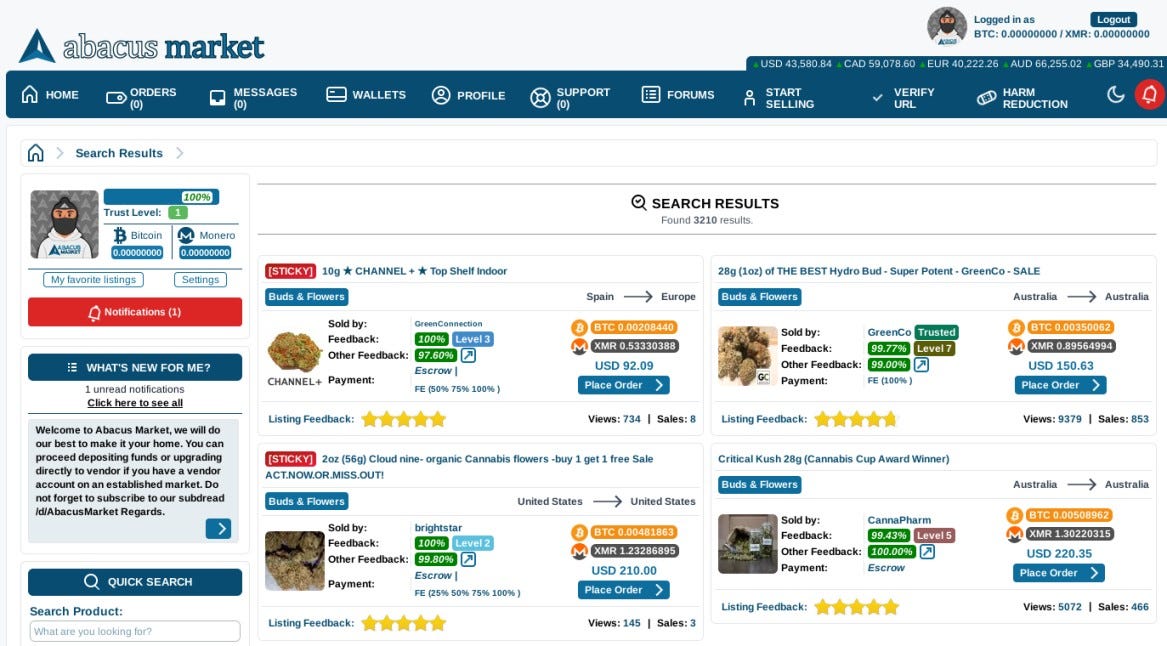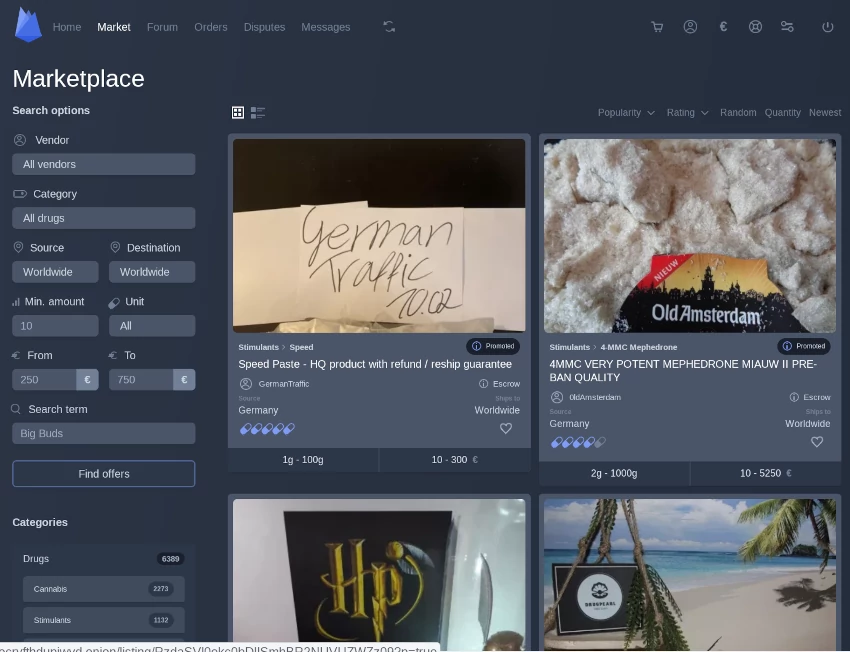The shadowy underbelly of the internet has long captivated the imagination of a multitude, often portrayed as a mysterious realm teeming with illicit activities and secret truths. Inside this unindexed part of the online world lies an intriguing marketplace that operates outside the reach of conventional law enforcement, where a wide array of things from common goods to highly illegal services can be found behind a veil of concealment. As interest in dark web commerce grows, so does the interest about the drivers that propel these ecosystems and the effects they have on society.
Delving into the realm of darknet markets reveals a intricate ecosystem fueled by a myriad of elements, including the quest for privacy, the desire for non-conventional goods, and the temptation of breaking social taboos. While many are drawn to these markets for nefarious purposes, others seek out the special products and services that conventional online shopping cannot provide. Grasping the nature of darkweb markets is essential not only for comprehending the shadowy aspects of online trade but also for recognizing the changing environment of digital commerce in the 21st century. spintax

### Understanding the Dark Web
The shadow web represents a obscured part of the internet that is not cataloged by traditional search engines. dark market list It operates on overlay networks that require specific software, settings, or access credentials to get to. The most prevalent way to navigate the dark web is through Tor, which anonymizes user activity by routing internet traffic through a set of volunteer-run servers. This level of anonymity attracts a wide range of users, from those seeking discretion to individuals involved in illegal activities.
Underground markets are a major component of the dark web, operating as online platforms where items and services, often forbidden, are bought and exchanged. These markets offer a wide range of commodities, including narcotics, counterfeit products, and computing services. The transactions on these platforms typically utilize cryptocurrencies to boost anonymity, making it challenging for authorities to track the buyers and vendors involved. This context fosters a unique economy that functions outside traditional regulations.
Grasping the reasons behind the use of dark web markets is crucial. While many users are lured to the offer of privacy and the power to bypass censorship, others may be pushed by curiosity or the yearning to participate in dangerous behavior. The allure of untraceable commerce can lead to a complicated web of interactions that remain far from the oversight of law enforcement and societal standards, making it a intriguing yet concerning area of study.
Economics of the Darknet

The darknet is an intricate economy that operates largely outside traditional financial systems. This clandestine market thrives on anonymity and is driven by various demand and supply dynamics. Digital currencies, especially cryptocurrencies, serve as the main medium of exchange, providing the essential confidentiality for transactions. This system attracts buyers and sellers who aim to bypass regulatory oversight and engage in activities often deemed unlawful in the traditional marketplace.
Within this secret economy, a variety of goods and services can be found, from illegal drugs and counterfeit goods to hacking services and stolen data. The operation of darkweb markets involves a multi-layered approach to ensure safety and secrecy for all participating parties. Vendors often use third-party services to protect transactions from fraud, while buyers rely on feedback and ratings to gauge the credibility of sellers. This system creates a unique environment where trust is built through digital reputation rather than conventional means.
The economic landscape of the darknet has significant implications for global commerce and law enforcement. Authorities find it challenging to regulate these markets due to their dispersed nature and the advanced methods employed by users to conceal their identities. As darkweb markets continue to evolve, they raise ongoing questions about the prospects of digital trade, the balance between privacy and security, and the persistent challenge of curbing illicit activities online.
Risks and Principles of Hidden Web Deals
Engaging in exchanges on the hidden web brings notable risks for consumers. One of the main issues is the risk for scams and deceptions. Many marketplaces are devoid of control, leading to scenarios where clients may lose their funds without getting the advertised goods or offerings. Additionally, the obscurity of the hidden web can embolden bad actors to take advantage of users, therefore making it important for people to act with caution and carry out comprehensive analysis before conducting any buying.
Aside from financial threats, there are legal consequences associated with hidden web trade. Many goods and offerings sold on these markets are forbidden, including everything from illegal substances to stolen information. Acquiring or even viewing certain products can expose users to legal scrutiny or likely criminal charges. It is essential for people to comprehend the laws in their jurisdiction and to be cognizant of the consequences of engaging with hidden web markets.
Ethically, the hidden web presents a complicated situation. Although some argue it offers a platform for political discourse and access to information in authoritarian countries, the pervasive presence of illicit conduct challenges its reputation. Deals that contribute to damage, be it through drug dealing or the sharing of illicit materials, test the values of people. Moving through this ethical landscape demands a deep consideration on the effects of one's decisions and their broader impact on the community.
